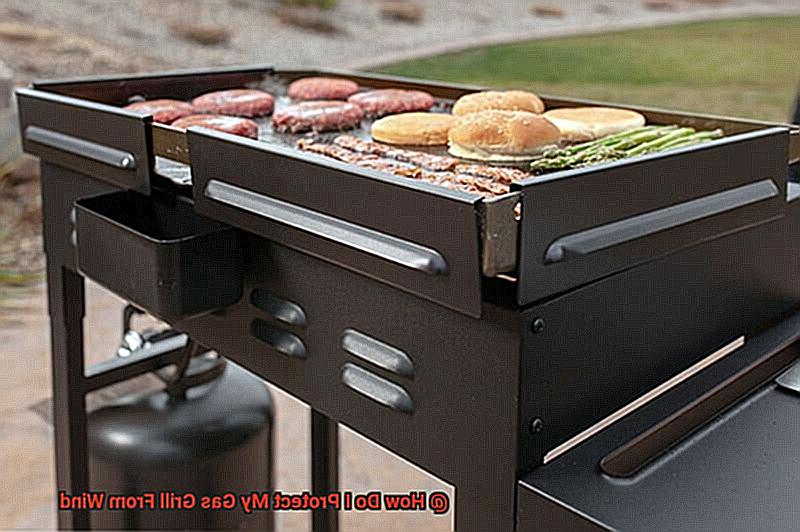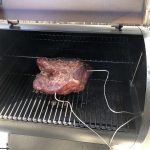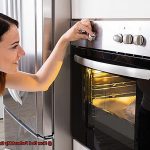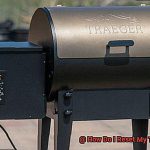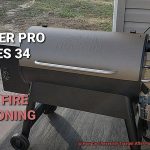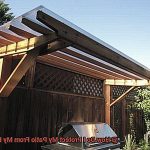Barbecuing is a quintessential summer activity, but cooking on a windy day can quickly turn your grilling dreams into a nightmare. The wind can snuff out your gas flames and throw off the temperature, making it nearly impossible to cook evenly. But don’t let the wind get the best of you. With a few simple tips and tricks, you can protect your gas grill from the elements and keep your barbecue going strong.
In this post, we’ll dive into some practical ways to prepare your grill for windy conditions. From choosing the right location to securing your grill and maintaining consistent heat, we’ve got you covered. But before we get into the nitty-gritty, let’s talk about why wind is such a formidable foe when it comes to grilling.
Did you know that wind can cause up to a 50-degree drop in temperature inside your grill? That’s enough to ruin even the most carefully planned cookout. Wind can also create flare-ups and make it difficult to control your flames. But fear not – there are plenty of strategies you can employ to protect your gas grill from gusts and enjoy perfectly cooked food every time.
Whether you’re an experienced pitmaster or just starting out, keep reading for our expert tips on how to safeguard your gas grill from windy weather conditions.
Contents
What is Wind and How it Affects Grilling?
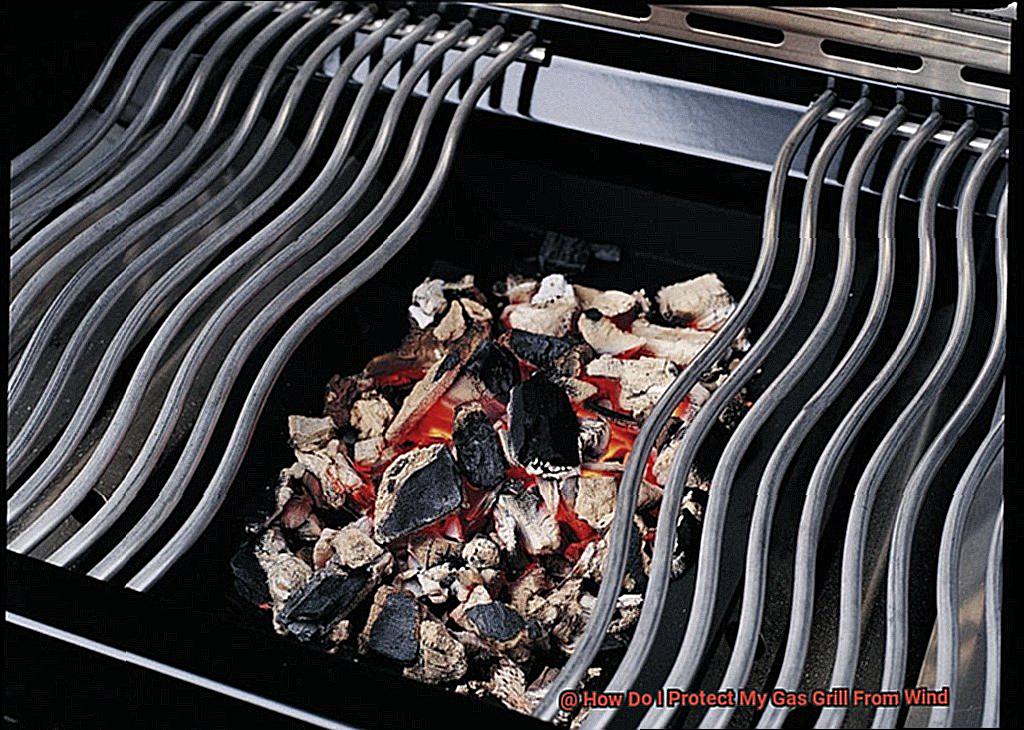
When it comes to grilling, wind can be a real game-changer. As an expert in the field, I know that wind can have a significant impact on the quality of your outdoor cooking experience. So, what exactly is wind and how does it affect grilling?
Wind is simply the movement of air molecules from high pressure areas to low pressure areas. It can be gentle or strong, and when it comes to outdoor cooking, even a light breeze can cause fluctuations in temperature and make it difficult to maintain a consistent heat level. This can result in uneven cooking of food, especially when grilling delicate items such as fish or vegetables.
However, the effects of wind go beyond temperature fluctuations. Wind can also cause flare-ups and even blow out the flame on gas grills, which is not only frustrating but also dangerous as it can lead to gas buildup and potential explosions. Additionally, wind can affect the amount of oxygen that reaches the fire, leading to incomplete combustion and potentially harmful chemicals being released into the air.
So, how can you protect your grill from the effects of wind? Here are a few tips:
- Choose a good location for your grill: Position your grill in a sheltered area, such as a covered patio or against a wall.
- Use a windbreak or shield: Consider erecting a temporary windbreak using materials like plywood or even a large beach umbrella.
- Adjust the grill’s position: Try adjusting the position of your burners or using a heat deflector to distribute heat more evenly and prevent hot spots caused by wind.
- Use a grill cover: Investing in a heavy-duty grill cover with tie-down straps or other mechanisms to keep it securely in place during windy conditions is another effective way to protect your gas grill.
- Use heavier cookware: Using heavier cookware like cast iron that can withstand the effects of wind better than lightweight aluminum or stainless steel is also a good idea.
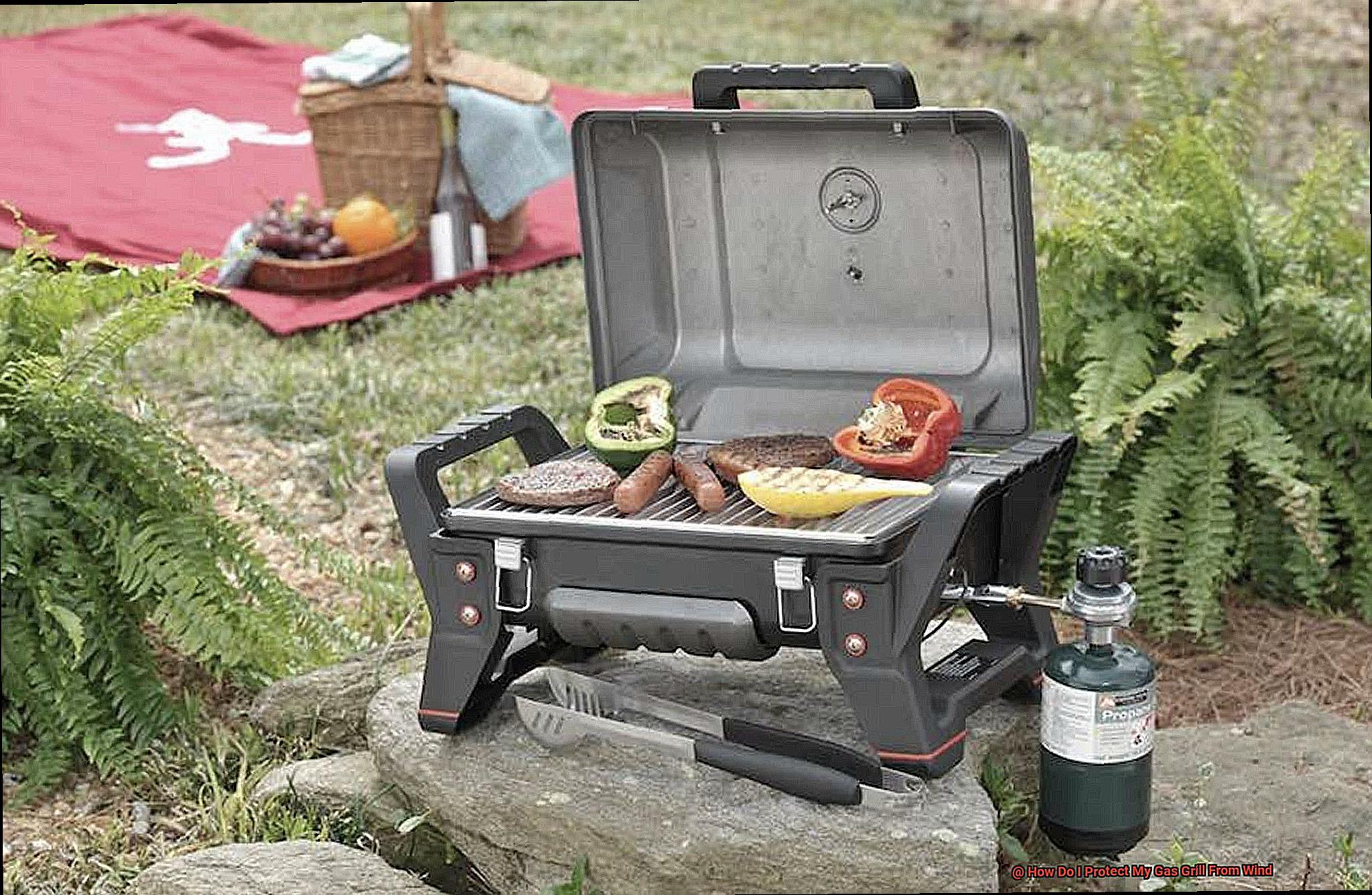
Creating a Physical Barrier to Protect Your Gas Grill from Wind
Luckily, there is a solution – creating a physical barrier to protect your gas grill from wind.
First, determine the direction of the wind to know where to place your barrier. A privacy screen or fence panel is a simple and effective option. If you don’t have one available, materials such as plywood or cardboard boxes can also work. Just ensure that the barrier is high enough to block the wind effectively but low enough not to obstruct your view while grilling. To keep it secure, add weights or tie-downs at the bottom.
For those who want a more permanent solution, building a wall around your grill using bricks, stones, or cinder blocks is also an option. This requires more effort and resources but provides a long-term solution.
Creating a physical barrier is an effective way to ensure that your gas grill stays at a consistent temperature and cooks your food perfectly every time. Say goodbye to external factors interfering with your grilling experience.
In summary, here are the steps to create a physical barrier:
- Identify the direction of the wind.
- Use a privacy screen or fence panel as a simple solution.
- If not available, use materials such as plywood or cardboard boxes.
- Ensure that the barrier is high enough but not obstructive.
- Add weights or tie-downs at the bottom for stability.
For a permanent solution, build a wall using bricks, stones, or cinder blocks.
Investing in a Grill Cover
As much as we love to feel the wind in our hair, wind can be a real party pooper when it comes to grilling. Not only is it frustrating, but it can also cause damage to your gas grill. Fortunately, investing in a top-quality grill cover is the solution to your problem.
A good quality grill cover is not just any ordinary shield against wind. It also protects your grill from other harsh weather conditions such as rain, snow, and UV rays. But not all covers are created equal. When shopping for a grill cover, here are some things that you should keep in mind:
Firstly, you want to look for a cover made from durable materials such as polyester or vinyl. These materials are waterproof and can withstand harsh weather conditions. Secondly, make sure that the cover has air vents that prevent moisture buildup inside. This will keep your grill dry and safe from mold growth. Lastly, it is crucial to choose a cover that is specifically designed for your grill size and shape.
Investing in a good quality grill cover is an affordable way to protect your gas grill from wind and other weather elements. In addition, it can add years to the lifespan of your grill by preventing rust and corrosion. Plus, it saves you the hassle of having to clean your grill after every use.
When shopping for a grill cover, consider the brand, price, and warranty. Some well-known brands for grill covers include Weber, Char-Broil, and Classic Accessories. Prices vary depending on the size and material of the cover, ranging from $20 to $100. Be sure to look for a warranty that covers any defects or damages to the cover.
Other Strategies for Protecting Your Gas Grill from Wind
Grilling is a beloved summer pastime, but nothing can be more frustrating than battling against strong winds that interfere with your cooking process. Fortunately, there are several strategies you can use to protect your gas grill from wind and ensure that your meals turn out perfectly every time.
Firstly, positioning your grill in a sheltered area is an easy yet effective way to reduce the impact of wind. Whether it’s nestled up against a wall or tucked away under a pergola, finding a protected spot can shield your grill from gusts and help maintain consistent cooking temperatures. Additionally, investing in a high-quality grill cover made from durable, weather-resistant material will not only protect your grill from the elements but also prevent wind from blowing out your flames.
Another useful tool to consider is a chimney starter. This device allows you to light charcoal outside of your grill and transfer it in once it’s hot enough, eliminating extended periods of open lids that can allow wind to interfere with your cooking process. And if all else fails, adjusting your cooking methods can be the difference between a delicious meal and a frustrating experience. Cooking at a higher temperature or using indirect heat can help you achieve great results even in challenging conditions.
Adjusting the Position of Burners
As we all know, there’s nothing quite like the thrill of grilling up a storm on a gorgeous summer day. However, gusty winds can quickly put a damper on your plans and cause flames to flicker or even blow out, leaving you with unevenly cooked food and a frustrating experience. Fear not, dear grill masters. By adjusting the position of your burners, you can keep your grill burning strong and ensure that your food cooks evenly.
First things first, you’ll want to make sure that your grill is positioned in a sheltered area such as a corner of your patio or near a wall. This will reduce the amount of wind that reaches your grill in the first place. Next, take note of the direction that the wind is blowing and adjust the position of your burners accordingly.
If the wind is blowing from one side, try positioning your burners diagonally so that they’re angled away from the wind. If it’s blowing directly at your grill, adjust the position of your grill so that it’s facing away from the wind. These simple adjustments will help ensure that your burners stay lit and your food cooks evenly.
But wait, there’s more. For an extra layer of protection against the elements, consider investing in a wind guard. These handy devices are usually made of metal and sit around the perimeter of your grill. They create a barrier between your grill and the wind, helping to keep the flames burning evenly and preventing them from flickering or blowing out.
Using Heat Deflectors to Even Out Heat Distribution
Don’t let the wind ruin your plans. Using heat deflectors is an effective solution that not only protects your gas grill from wind but also ensures consistent heat distribution for perfectly cooked food every time.
Heat deflectors are metal plates that sit between the burners and the cooking grates, redirecting heat and preventing flare-ups. By creating a barrier between the wind and the flames, heat deflectors allow for more consistent heat distribution and reduce the risk of flare-ups. This means no more undercooked or burnt food.
There are different types of heat deflectors available on the market, such as ceramic, stainless steel, and cast iron. Ceramic deflectors are known for their ability to retain heat and distribute it evenly, while stainless steel deflectors are durable and easy to clean. Cast iron deflectors are also durable but require seasoning before use. Whatever type you choose, a heat deflector is an essential tool for any grill master.
Using a heat deflector is simple. Just place it over the burners before turning on the grill, ensuring that it covers the entire cooking area. You may need to adjust the temperature settings on your grill to account for the added barrier between the burners and the cooking grates.
Not only do heat deflectors protect your gas grill from wind and ensure even cooking, but they also extend the life of your grill by preventing flare-ups and reducing grease buildup on the burners. It’s a win-win situation.
Utilizing Heavier Cookware to Withstand Windy Conditions
You’ve got your grill fired up and ready to go, but the wind starts to pick up, threatening to ruin your perfectly planned barbecue. Don’t let the wind get the best of you. Utilizing heavier cookware can be a game-changer when it comes to grilling in windy conditions.
Cast iron cookware is a fantastic option for windy conditions. Cast iron is known for its ability to retain heat, making it an ideal choice for cooking in gusty weather. To ensure that your food is cooked evenly and thoroughly, preheat your cast iron cookware thoroughly before adding any food. This will help to distribute the heat evenly throughout the cookware.
Stainless steel is also a great choice for heavier cookware when grilling in windy conditions. Look for pans or grates that have thicker bottoms to prevent hot spots and ensure even cooking. Stainless steel is also known for its ability to retain heat, so choose this option if you want consistent heat for your food.
When selecting your cookware, consider the size and shape as well. Choose options with higher sides to prevent your food from getting blown around or off the grill. Additionally, using a grill cover or windscreen can provide added protection against windy conditions.
Also Read: Blackstone griddle not getting very hot?
Conclusion
As the summer season approaches, grilling enthusiasts gear up to cook their favorite meals on gas grills. However, gusty winds can ruin the whole experience by causing temperature fluctuations and even extinguishing the flames. But fret not. There are several effective strategies to shield your gas grill from windy conditions and ensure perfectly cooked food every time.
One of the simplest ways to protect your grill is by choosing a suitable location that is sheltered from strong winds. Additionally, using a windbreak or shield can provide an extra layer of protection against gusts. Adjusting the position of burners and utilizing heavier cookware like cast iron or stainless steel can also help retain heat and prevent flare-ups caused by wind interference.
Investing in a high-quality grill cover can go a long way in safeguarding your gas grill from harsh weather conditions. Moreover, creating a physical barrier around your grill using materials like plywood or bricks can prevent temperature fluctuations and maintain consistent heat for optimal cooking results.
Using heat deflectors between burners and cooking grates is another effective technique to redirect heat and prevent flare-ups while extending the life of your grill. By employing these expert tips, you can enjoy delicious grilled meals all summer long without worrying about windy weather conditions interfering with your cooking process.
So don’t let gusty winds dampen your grilling dreams.

